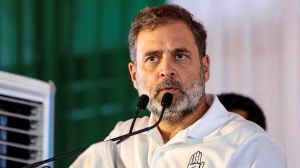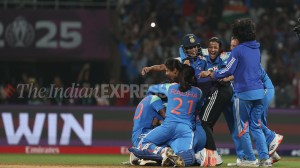Politicians vs Establishment (contd)
Pakistan’s politicians have clearly scored a major victory against what is euphemistically called ‘the establishment’ in Pakistan.

Pakistan’s politicians have clearly scored a major victory against what is euphemistically called ‘the establishment’ in Pakistan. But the battle between ‘the establishment’ and the politicians is far from over.
Pervez Musharraf has yet to understand that his rejection by the people requires him either to step down or at least accept a diminution of his role. Musharraf might mistakenly see the election results as comparable to the victory of the Pakistan Peoples Party (PPP) in the 1988 polls held immediately after the death of General Zia-ul-Haq.
Then, Zia-ul-Haq’s successor Ghulam Ishaq Khan retained considerable influence as president even after Bhutto became prime minister and eventually used Zia’s constitutional amendments to overthrow the elected government. But in 1988, Pakistan’s establishment had not been as thoroughly discredited as it is now.
This time, the country’s major political parties have agreed on a common minimum platform that aims at restoring the Pakistani Constitution, rehabilitating its judiciary and moving towards national reconciliation. The army appears to have decided to pull out of politics. That said, ‘the establishment’, made up of politicised generals, intelligence officials, and Pakistan’s managerial class — bankers, civil servants, some overseas businessmen, World Bank beneficiaries and former or current IMF employees — will not give up easily. Soon there will be rumours of corruption and mismanagement to discredit the elected leadership and efforts to create rifts among them.
So far, PPP co-chairman Asif Ali Zardari and the PML-N leader Nawaz Sharif have shown that the politicians have learnt from the experience of the 1990s. Zardari, in particular, has emerged as a statesman in contrast to the demonisation he was subjected to for being married to Mohtarma Bhutto.
Many of Pakistan’s problems, such as the influence of jihadi extremists and difficult relations with Afghanistan and India, can be traced to the ascendancy of strategic military doctrine at the expense of domestic stability and democratic decision-making. All that could change if the army stays its course of disengagement from politics and the politicians work together.
A future government of national unity led by elected politicians should try and end the political role of intelligence services. For too long, an all-powerful intelligence community has run — and ruined —Pakistan by fixing elections, dividing parties and buying off politicians. If the politicians prevail, the war against terrorism would be fought to eliminate out of control jihadi groups previously nurtured or tolerated by the Pakistani state, not to secure additional funding from the US.
The civilians would seek a clearer strategy against militant Talibanisation within Pakistan, because they have a clear mandate in the form of electoral rejection of Islamists.
The PPP leadership and the PML-N also seem to agree on normalisation of relations with India and this time there is little likelihood that any side would paint the other as being ‘soft’ on India. After initial confrontation, even Musharraf has come around to managing a relatively quiet relationship with Pakistan’s South Asian neighbour making it difficult for the establishment to play the ‘India card’ to discredit popular politicians.
In the run-up to the recent elections, none of the major political parties highlighted the Kashmir issue. That raises expectations of a political consensus on developing normal relations with India. In the past, any politician seeking friendly ties with India has faced criticism from rivals, prodded by the establishment, seeking to tap into anti-India sentiment in Pakistan.
The writer is director of Boston University’s Centre for International Relations haqqani@bu.edu



- 01
- 02
- 03
- 04
- 05



























